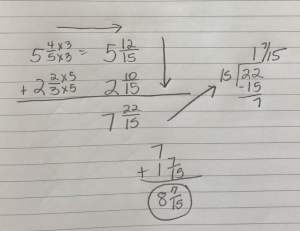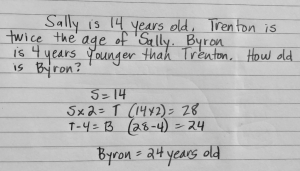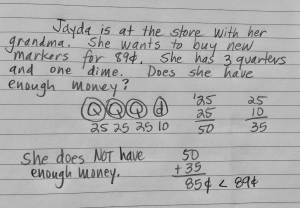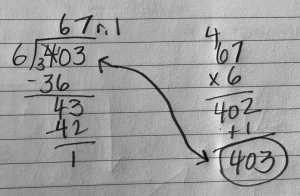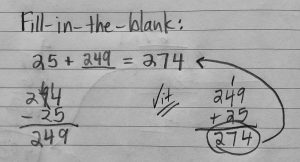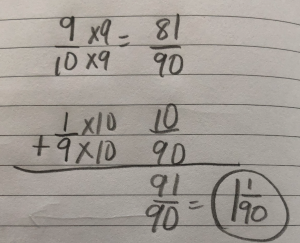Math Takes Work.
Often people, who are proficient in math, are considered gifted. As you dig deeper, you find those who are successful at Math are those who work the hardest . Yes, Math takes work!
So how can teachers help students become harder workers in Math? It starts with –
Show Students What Hard Work “Looks Like”
1. Hard Workers are Neat and Orderly
When introducing a new skill, teach students orderly ways to solve a problem. Neatness counts in Math!
For example: When adding mixed numbers, it’s important to work neatly and show all the steps. Often this means working horizontally, then vertically, etc…
How about skip counting? Do you teach the skill using “carrot tops”? Share with your students that hard workers show the “carrot top strategy” to help eliminate mistakes.
Then, tell your students you will be looking for hard workers by checking out their “Show What You Know” Forms. Teaching children formatting tricks to become neat, orderly workers does wonders. When students implement the techniques, you create hard workers.
2. Hard Workers Create Logic
Some Math problems seem daunting, especially story problems. Hard workers break them down into pieces and begin creating math equations.
Other times a picture representation helps. Hard workers create logic by breaking the problem into pieces.
3. Hard Workers Check Their Work
It is easy to make simple mistakes in math – add something wrong, don’t carry a number, etc… Hard workers don’t just stop at the answer. They check their work!
4. Hard Workers Check to See if the Answer Makes Sense
9/10 is close to one whole. One ninth is close to zero. The answer is close to one whole – makes sense!
Cutting corners is a common problem.
Many children believe that hard work means completing the assignment. But, there’s so much more, like doing the work each problem requires.
Showing children what hard workers do is a great place to start.
“Doing mathematics is a bit like playing sport or learning a musical instrument. You can’t do it well immediately – it requires practice. Think of having a mathematical muscle in your mind that with practice gradually gets stronger.”
Marcus de Sautoy


